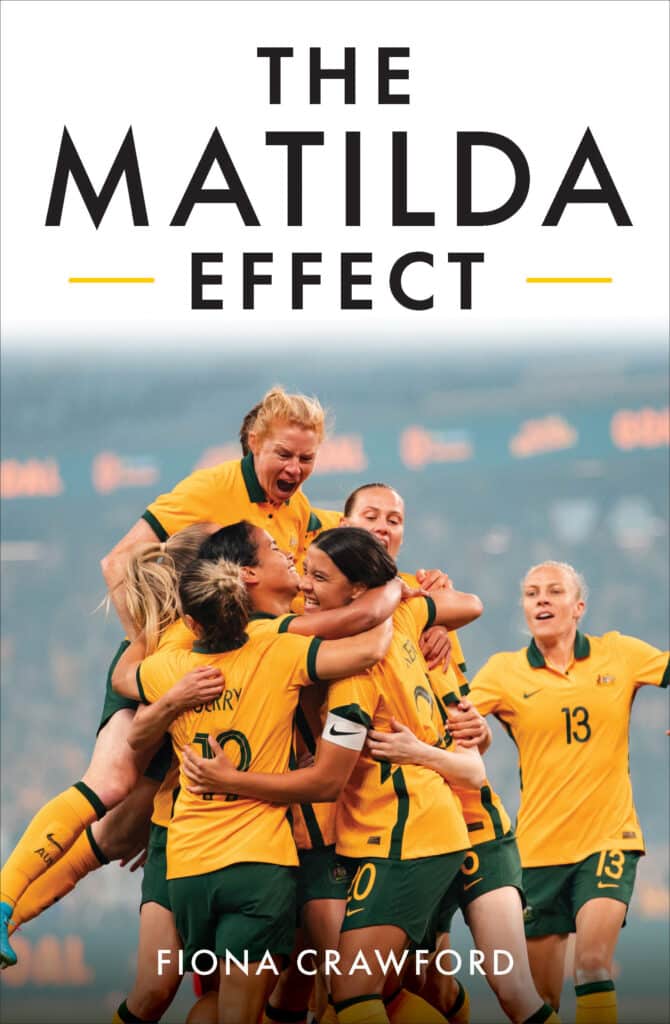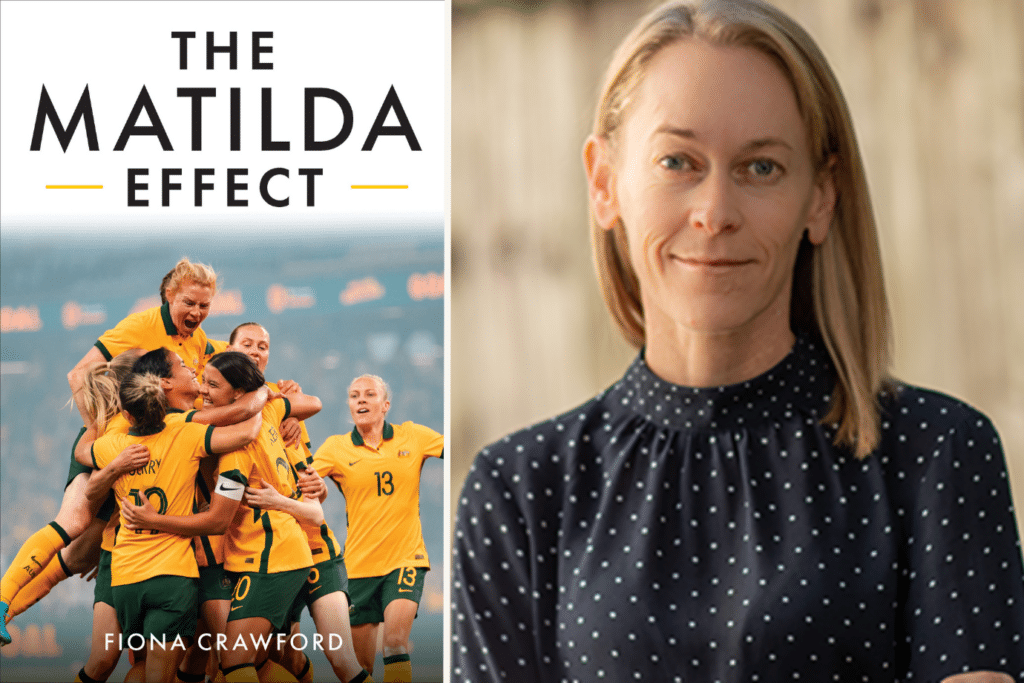With their most recent advancement to the quarter finals in the Women’s World Cup and the record turnouts from fans, it’s clear the Matilda’s are taking over football within Australia.
On Monday night, their win against Denmark drew more views than every men’s NRL grand final and men’s State of Origin since 2016, and the past seven men’s AFL grand finals.
With such record-breaking growth– surpassing men’s football– some may be wondering whether demand for women’s football is just now beginning or if it’s always been there.
Speaking to Women’s Agenda, Dr Fiona Crawford, an author, editor and researcher of social and environmental issues– particularly women’s football– says the market has always been there but resourcing has only just picked up.
“We’ve known the potential– it’s actually just been the resourcing of it and the media coverage and the promotion of the game [that has increased],” she says.
“In a lot of ways, you could say the players have always been really, really talented and they’ve always been really remarkable, interesting humans.”
There’s actually a scientific phenomenon that mirrors this occurrence and it’s aptly named ‘The Matilda Effect’– when the achievements of women scientists are attributed to their male colleagues because of gender bias.
In a recently published book of the same title The Matilda Effect Dr Crawford has examined the under-appreciation of women’s football just in time for the Matilda’s to be crushing it at their home soil World Cup.

As Australia’s most successful national soccer team, The Matildas gutsy story is told in Dr Crawford’s latest book and the remarkable growth of women’s sport.
“Because [the Matildas are] playing the world game, when something happens in that space in terms of gender equality, it has implications for all women around the world,” says Dr Crawford on her motivation behind writing the book.
“Women’s football brings together social issues and gender equality– They seem like they’re not related but actually, football is a really good lens for looking at some of those really complex social issues.”
Dr Fiona Crawford
“There are some pretty remarkable contributions and pretty phenomenal women in this space,” she says, adding that “most of them are still alive– which is another thing– we have the opportunity to learn from [the players] and hear from them and celebrate them, and I’d really love to see that happen.”
Dr Crawford says she wasn’t even aware Australia had a women’s football team until 2007. And when she started looking into them, many issues came to light– a lack of resourcing, a lack of pay parity and equal prize money– all of which Dr Crawford says affects the players’ ability to “fully professionalise their careers”.
Earlier on in her own career, Dr Crawford used to work in social media for the Matildas and says she used to get messages from people asking where they could buy a Matildas jersey for their child or a women’s cut jersey.
“I kept taking that information back and sort of feeding it up the line, but the sponsors who made the jerseys, for whatever reason, didn’t seem to think there was a market for it,” says Dr Crawford.
“What we’re seeing now is that when they finally do produce the jerseys, there is a market for it.”
“Women’s football has been in all along, but now, when you actually make the jerseys, put the matches in reasonably sized stadiums– the ticket sales and the jersey [sales] reflect just how big that audience and that market is.”
At Stadium Australia in Sydney, there was a crowd of almost 76,000 for the Matildas’ win against Denmark in the World Cup, and the broadcast of the game became the highest-rating TV program of 2023. An astounding and record-breaking 6.54 million people tuned in to watch them and their next quarter final game against France could break that record again.
“We always knew it was incredible, and we always hoped for something as good as this but I feel like we’re still pinching ourselves,” says Dr Crawford. “It’s going to take us a while to process just how phenomenal it’s actually been.”


